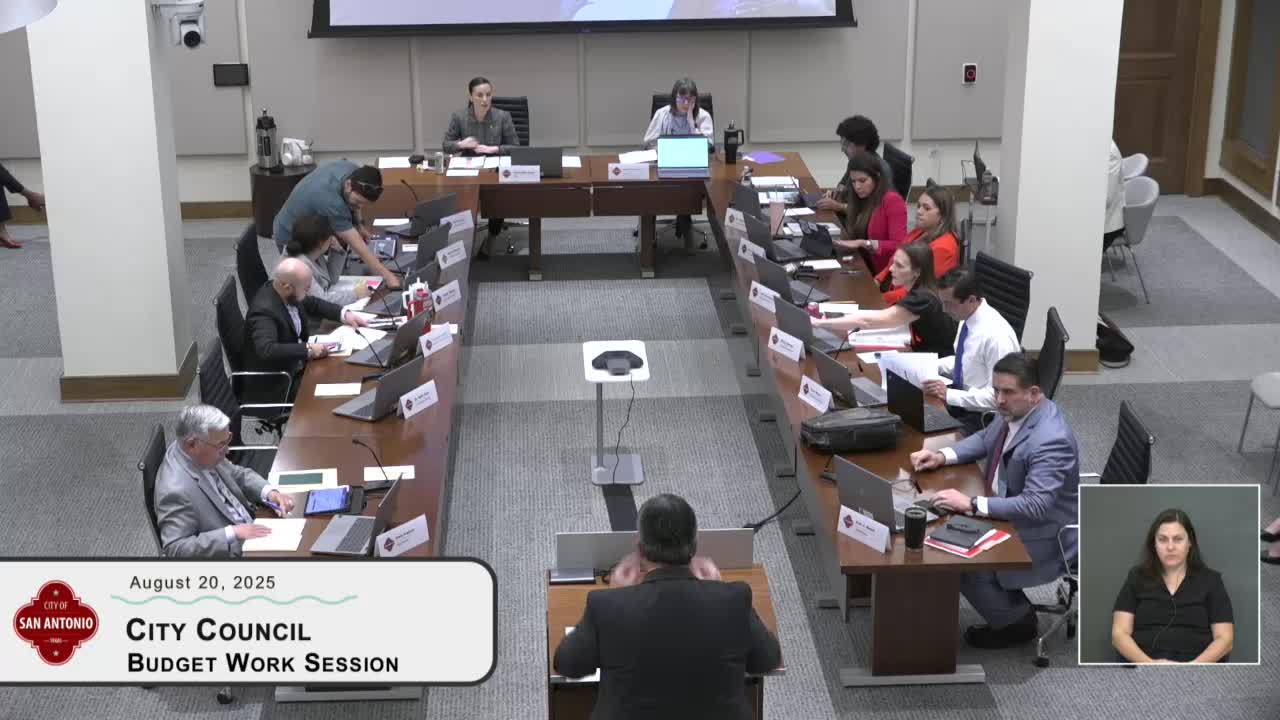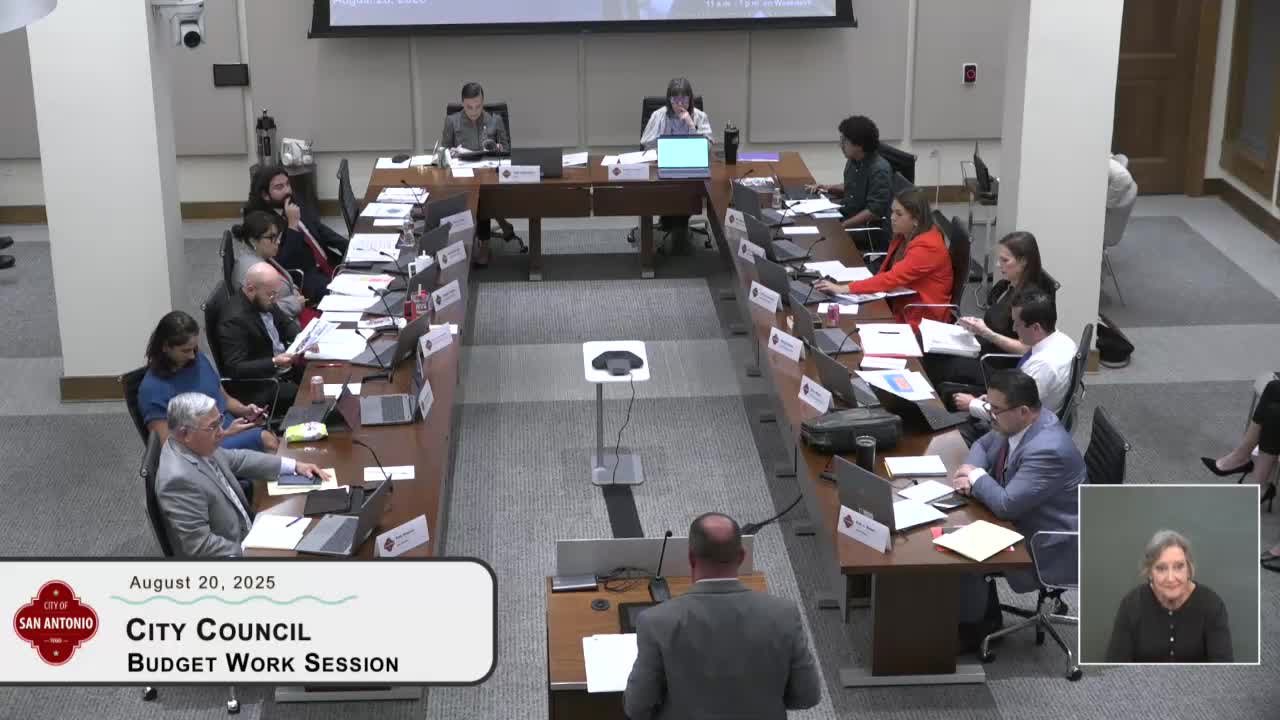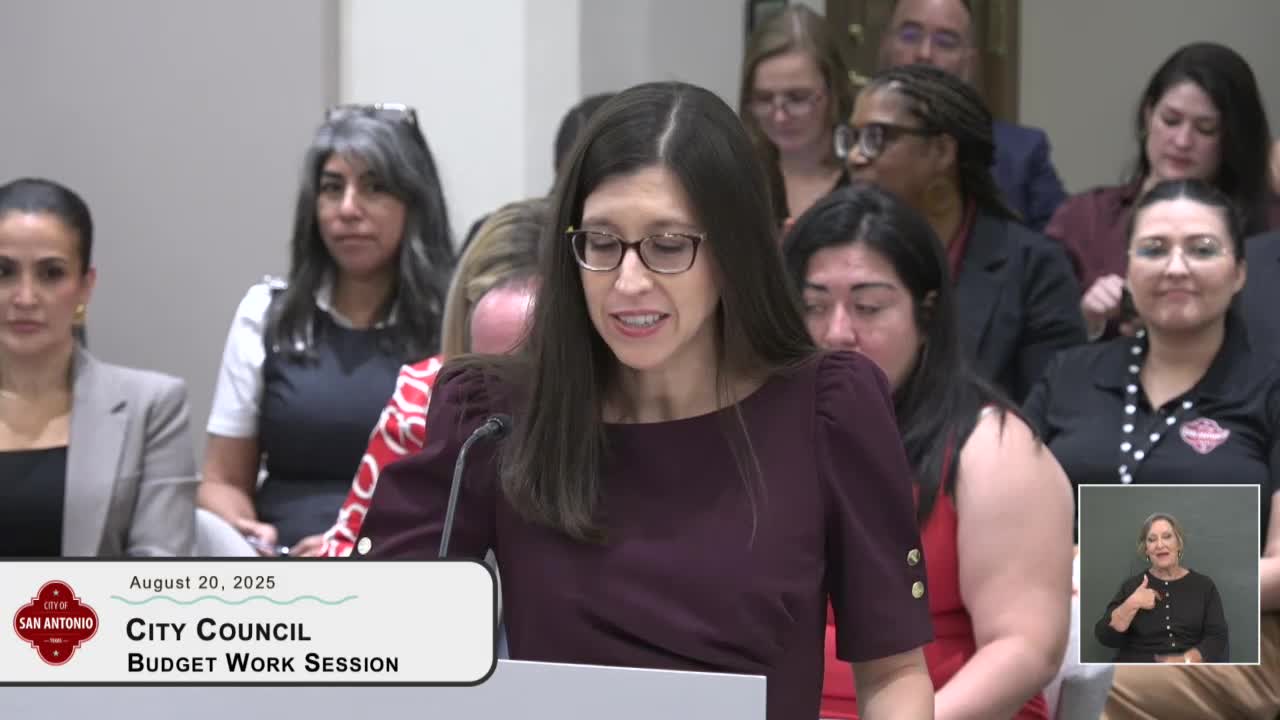Article not found
This article is no longer available. But don't worry—we've gathered other articles that discuss the same topic.

San Antonio proposes $26.1 million for new Homeless Services & Strategy department, funds low‑barrier shelter for one year

Animal Care Services requests $33.6 million for FY26; expands clinics, outreach and spay/neuter efforts

